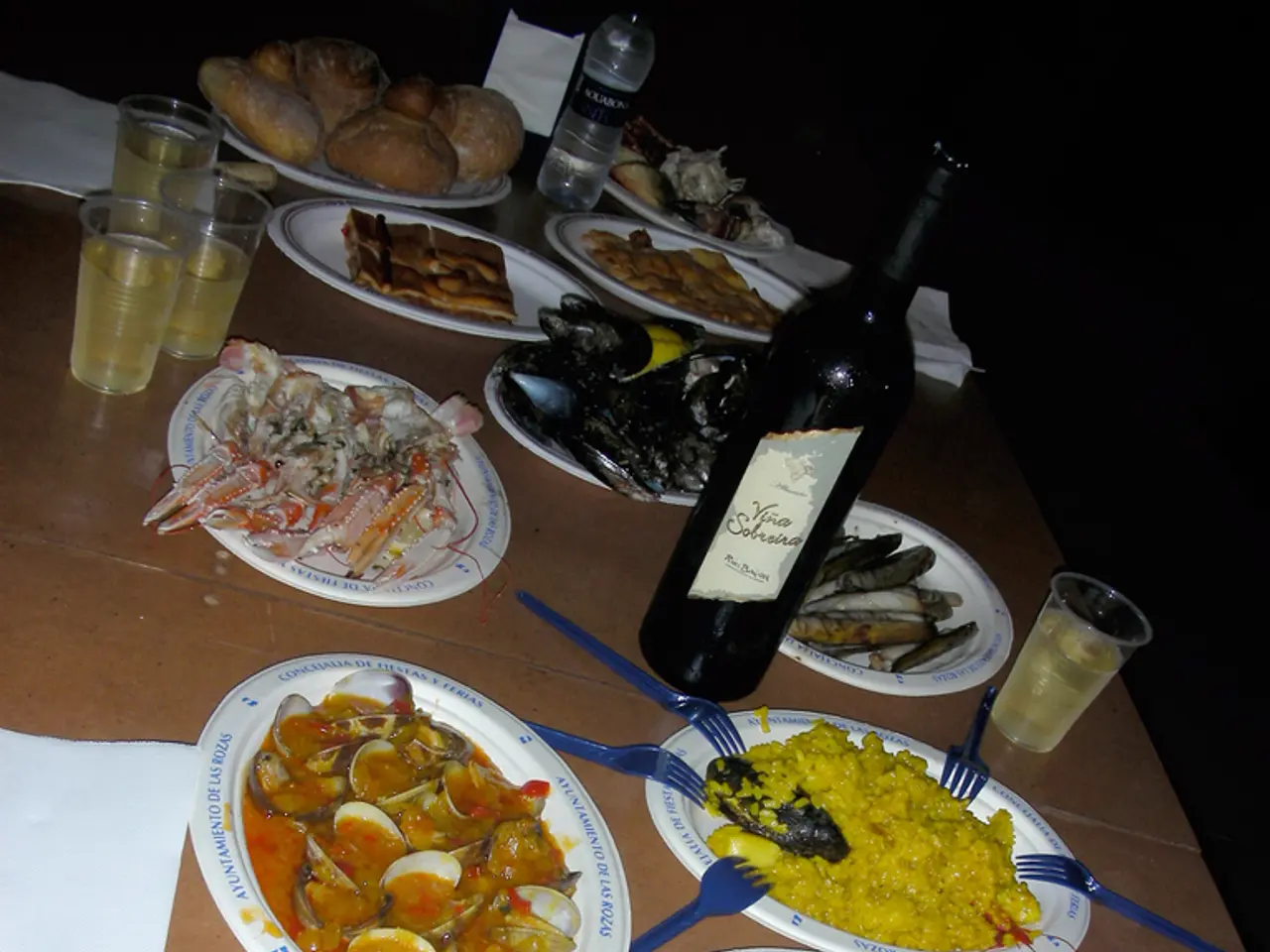Philippines' Cebu region could spearhead the nation's integration into the global halal economy.
Cebu, Philippines, is urging stakeholders to align its food, tourism, and business sectors with Islamic principles to make it halal-compliant, positioning itself as a potential leader in the rapidly growing global halal market.
The move comes as neighboring countries aggressively capture market share in the halal industry, and Cebu must act fast to avoid being left behind. By embracing halal as a comprehensive lifestyle system emphasizing cleanliness, ethical conduct, and faith adherence, Cebu can differentiate itself as a trustworthy and attractive hub for halal investment, trade, and tourism.
Key strategies include developing a halal-friendly ecosystem that goes beyond food to encompass lifestyle elements, aligning tourism and hospitality services with halal standards, promoting investment incentives for halal-compliant businesses, engaging stakeholders for capacity building, and marketing Cebu as a halal hub through events and summits.
To cater to Muslim consumers, businesses must provide halal food, prayer spaces, ablution-friendly restrooms, and avoid Islamophobic environments. Halal cosmetics and pharmaceuticals must be free of haram substances like alcohol and pork derivatives, while halal logistics must ensure segregation of halal and non-halal goods throughout the supply chain.
Cebu's existing appeal as a tourist hotspot, combined with a growing awareness of halal practices, positions it well to capture a slice of the global halal tourism market, which is expected to reach $300 billion by 2026. The city's world-class tourism, diverse economy, and potential in food, services, and trade can make it a halal-friendly destination and investment hub.
Cebu's inclusion in Travel + Leisure's 2022 list of the "World's Best Islands" and the Philippines' recent recognition as a "Rising Muslim-Friendly Destination" can attract halal-conscious travelers and investors. The global halal market is estimated to be worth over $7 trillion and projected to hit $10 trillion by 2030, offering potential for diversification and scaling up for Filipino enterprises.
The Philippine Halal Export Development and Promotion Act of 2016 aims to position the country as a competitive halal-exporting nation, creating jobs, promoting trade, and attracting investments. The NCMF accredits certifying bodies to ensure halal compliance, working with the Department of Trade and Industry under Republic Act 10817.
Although the Philippines is still in the process of harmonizing halal standards, Cebu can be ahead of the curve by laying the groundwork now. By adopting halal practices, Cebu can tap into the potential of Islamic finance, cosmetics, fashion, logistics, and more, and become a regional leader in halal trade and tourism.
- The government of Cebu, Philippines, is encouraging various sectors, including finance, business, and travel, to adopt halal principles to position themselves in the rapidly growing global halal market.
- To stand out, Cebu is contemplating halal as a holistic lifestyle system, emphasizing cleanliness, ethical conduct, and religious observance, to attract investors and tourists.
- Key strategies being considered include developing a welcoming halal ecosystem, aligning tourism and hospitality services, promoting investment incentives, engaging stakeholders for capacity building, and showcasing Cebu as a halal hub through events and summits.
- In the food-and-drink industry, businesses must ensure they provide halal food, offer prayer spaces, and maintain ablution-friendly restrooms, while avoiding Islamophobic environments.
- Halal cosmetics and pharmaceuticals should be free of haram substances like alcohol and pork derivatives, and halal logistics must ensure proper segregation of halal and non-halal goods throughout the supply chain.
- Cebu's existing appeal as a tourist destination, combined with the growing awareness of halal practices, makes it a prime choice to capture a portion of the anticipated $300 billion global halal tourism market by 2026.
- The Philippine government aims to make the country a competitive exporter of halal products through the Halal Export Development and Promotion Act of 2016, working towards creating jobs, promoting trade, and attracting investments in various sectors, such as finance, cosmetics, fashion, logistics, and more.




